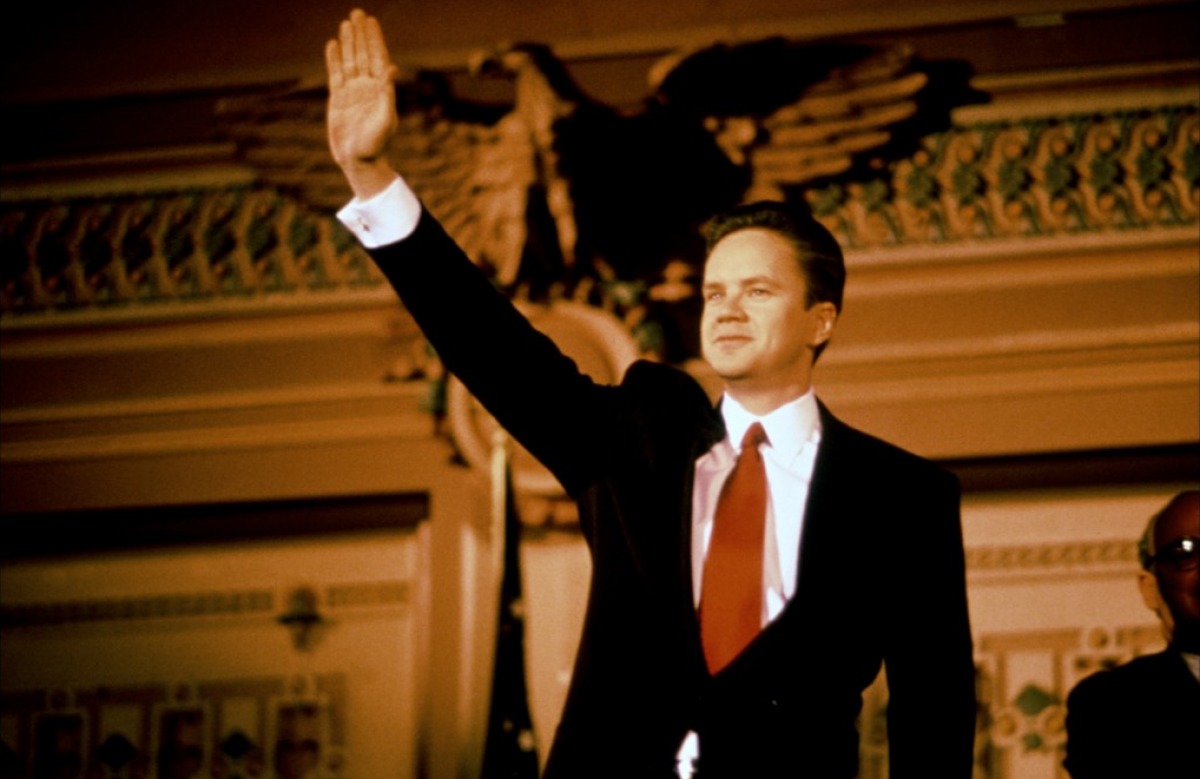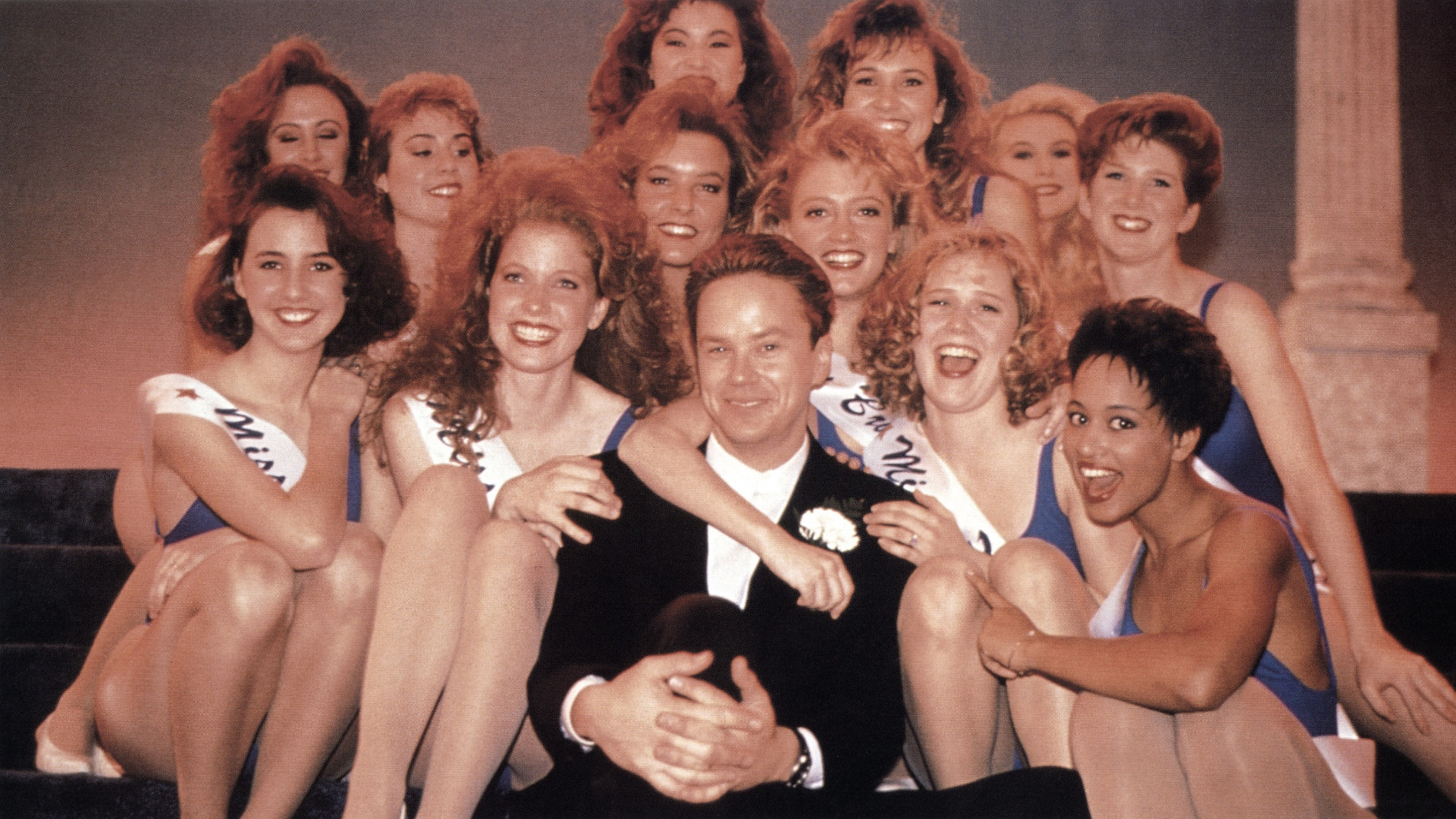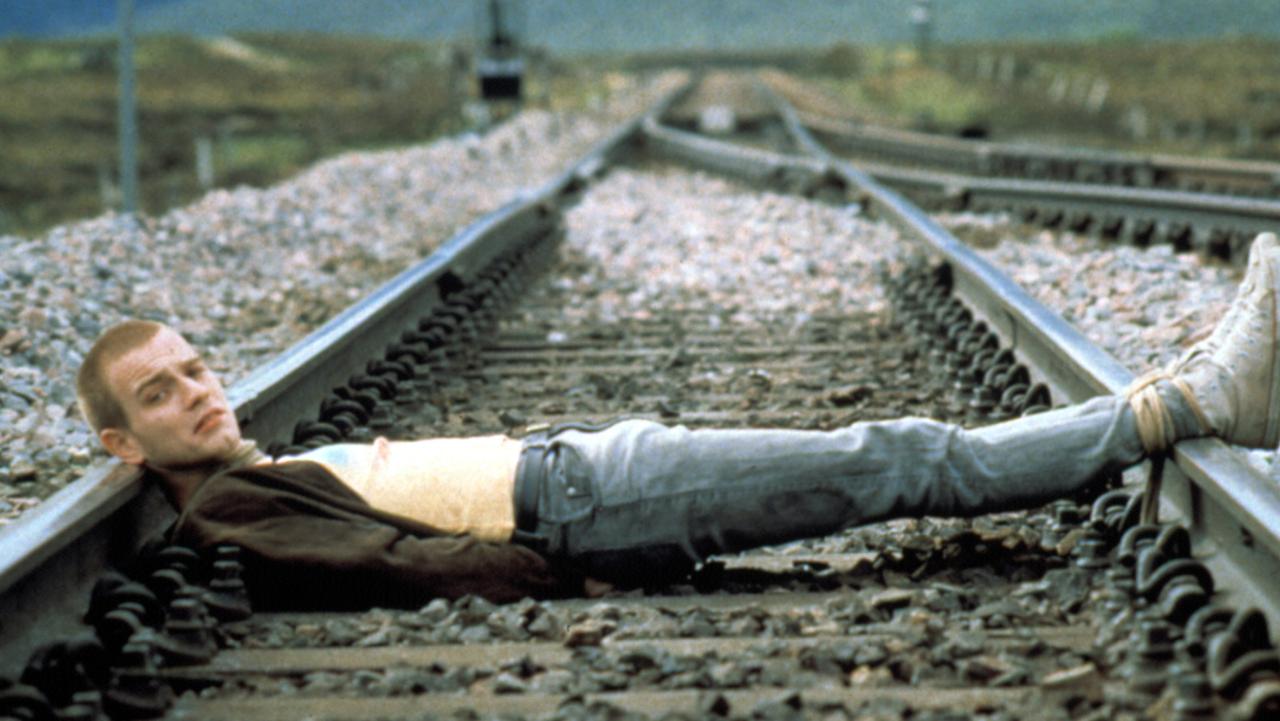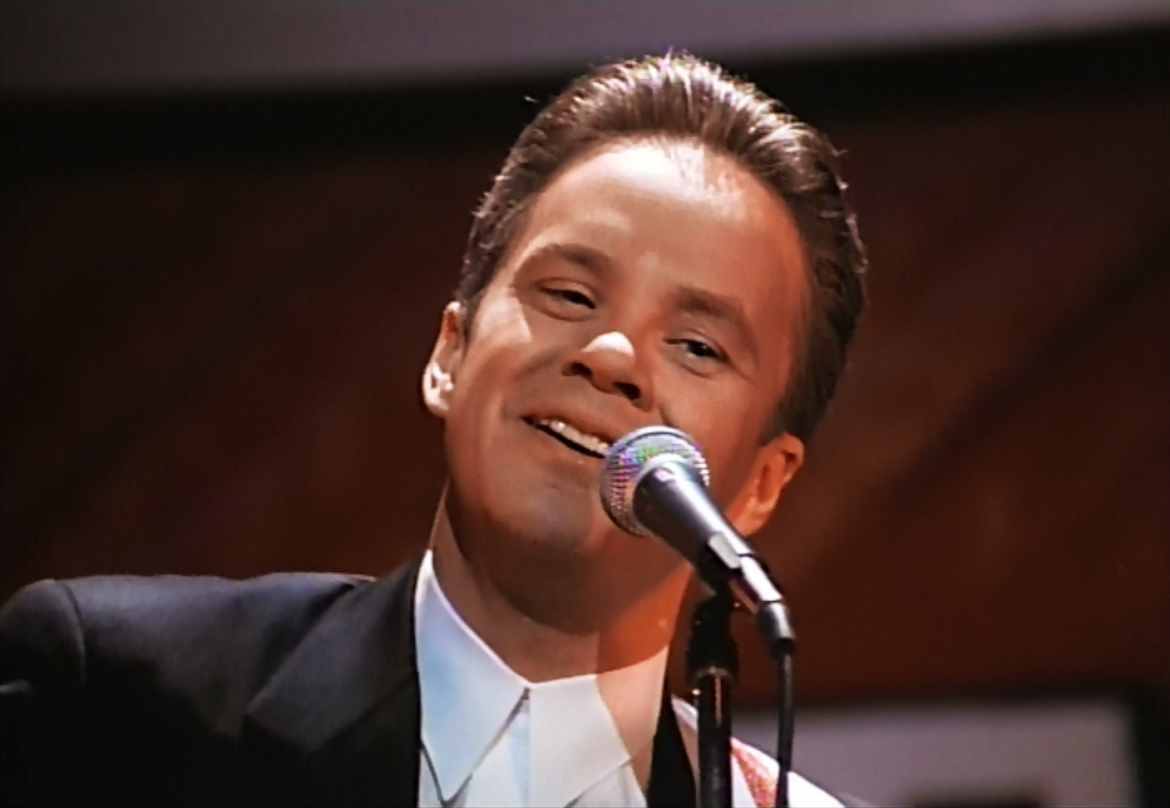Is 5 days before the blessed end to one of the objectively grossest, most cynical elections in American history the best time to revisit Tim Robbins’ equally cynical 1992 satire Bob Roberts? As it’s new to streaming this week, Netflix apparently thinks so.
And why not? Perhaps you’d like nothing more than an acerbic, deeply nasty portrait of political hucksterism and crypto-fascist populism right about now. Robbins — writer, director, and star — cast what seems to be every working actor of 1992 (and also Gore Vidal) for his riff on Robert Altman’s Tanner ’88, tossing in some Spinal Tap touches and cross-pollinating the whole thing with righteous liberal indignation.
The character of “conservative rebel” Bob Roberts — greed-and-selfishness-championing folk singer, pious rejector of post-’60s lawlessness, corrupt day trader, promising Senatorial candidate — becomes a vehicle for every barb Robbins can throw at political hypocrisy and charming, aw-shucks totalitaritariasm. Bob Roberts the film is often exhausting (and sometimes dated in its particulars), but Bob Roberts the character is inspired, and many of those barbs still land with horrifying familiarity.

Robbins’ film frequently lays it on so thick that some of the funniest, most biting moments emerge in between the bromides. The late Alan Rickman is especially good as Roberts’ CIA-affliated puppet-master Lukas Hart III, sporting an insidiously unconvincing smile and tossing off lines like “Now if you’ll excuse me, I have to go pray,” with all the conviction of a man who has never once stepped foot inside a house of worship but understands media relations perfectly. Liberals aren’t immune, either. When John Cusack, preparing for an appearence on a SNL-like show, delivers a long-winded, improv screed against Roberts’ militarist corporatism, one castmember says it’s too controversial, but another one is more on the mark: “Also, it’s not funny.” (Keith Olbermann, take note.)
Still, there are plenty of laughs in the broader moments, even if they come out a little angry and bitter these days. Surely, the 2016 Candidate Who Shall Not Be Named would jump at the opportunity to have Roberts on stage with him, perhaps playing one of his Dylan-esque protest tunes off The Times Are A-Changin’ Back or Bob on Bob. And Bob Roberts would’ve made an ideal VP, a signficiant step-up from that walking vision of the banality of evil Mike Pence. Hell, Roberts even hosted a beauty pageant! So I’m sure they’d have plenty to discuss

The main thing that separates Bob Roberts from his erstwhile real-life running mate is the “crypto” part of crypto-fascism. Slickness is his main attribute, and Robbins’ film is afraid of this first and foremost. The poster for Bob Roberts featured its protagonist literally wrapped in the American flag, a nod to the famous quote about how fascism will come to this country, but the film itself argues that this is only one small piece of the creepy conspiracy. Our complacency, the media’s desire for appealing narratives, and the candidate’s mastery of optics and presentation all contribute to creeping danger.
It’s hard to imagine Bob Roberts lashing out at anyone, at least when there’s a camera on him, much less getting into Twitter wars with minor celebrities; he’d be too busy cashing in on foreign conflicts. On the other hand, in his popular number “Retake America,” Roberts sings:
This land is my land
This land is our land
You gotta be proud to be
In the land of the free
This land was made for us
This land was made for me.
Perhaps the times are a-changin’ back after all.
Quick Links

Too much American political intrigue? How about a saga of pre-Unification China instead?
Zhang Yimou’s historical epic / gravity-defying martial arts spectacular is also new to streaming this week. The words “ravishing” and “sumptuous” get thrown around a bit much in its description, but they fits. Christopher Doyle’s cinematography is nothing short of gorgeous, infusing the nesting-doll narrative with particular colors and moods for particular stories, and all of the leads are excellent. This is a movie to get lost in.

Charting the trials and tribulations, frustrations and successes of working scientists doesn’t necessarily sound like gripping cinema, but Particle Fever is well-told, compelling portrait of experimentation and inquiry. Plus, the Large Hadron Collider simply looks amazing, even if we need to be told what it does. (Thankfully, numerous people are on hand in the documentary to help out with that.)
Balancing illuminating portraits of the individual players with the historic discoveries they hope to find, the film generates real tension, while educating those of us who never got past high school physics. It’s a fascinating look at applied science and the people who apply it.

With the recent release of its sequel’s trailer, now’s a good time to revisit Danny Boyle’s 1996 breakthrough. It’s still as anarchic and nihilistic and occasionally disgusting as ever. Irvine Welsh’s cynicism creeps in, but there’s more to it than just that — not least, Ewan McGregor in his defining, non-Obi Wan role.

Any treatment of Che Guevara’s exploits will arrive to already polarized audiences, and Stephen Soderbergh’s two-part epic didn’t try particularly hard to smooth things over. It’s a simultaneously romantic and weirdly removed biopic, running nearly three hours, all told, while steadfastly refusing to get inside its subject’s head.
As such, plenty of critics have found it wanting, more a tribute to Soderbergh’s directorly impulses than an even-handed approach to a controversial figure. Oh well! I’m not sure who dictated that such films need to be even-handed in the first place, much less “get inside” anyone’s head. Che is a masterfully constructed film, with a deeply nuanced performance from Benecio del Toro and some startling cinematography courtesy of Soderbergh himself. It’s more than worth a watch.

